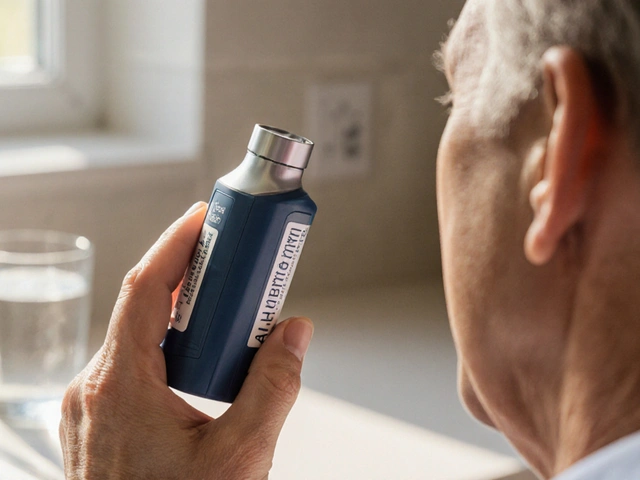Alpha-Lipoic Acid: What It Is and Why It Matters
You've probably seen alpha‑lipoic acid (ALA) listed on supplement bottles or in health blogs, but what does it actually do? In simple terms, ALA is a natural antioxidant that helps protect your cells from damage. It works both in water and fat, so it can travel through almost every part of your body. That makes it a handy tool for supporting metabolism, nerve health, and even skin appearance.
Unlike many other antioxidants that stay in one part of the body, alpha‑lipoic acid can cross the blood‑brain barrier. This means it may help the brain handle oxidative stress, which is a fancy way of saying it could support mental clarity and protect against age‑related decline. If you’re looking for a supplement that does a little bit of everything, ALA is worth a closer look.
Key Health Benefits
First up, blood‑sugar control. Several small studies have shown that taking 300‑600 mg of ALA daily can improve insulin sensitivity, which helps the body use glucose more efficiently. For people with pre‑diabetes or type 2 diabetes, this can translate into steadier energy levels and fewer spikes.
Next, nerve support. ALA is often recommended for peripheral neuropathy—those tingling or numb sensations you might feel in your feet or hands. The antioxidant action appears to reduce inflammation around nerve cells, leading to less pain over time.
Skin lovers also benefit. Because ALA helps neutralize free radicals, it can lessen visible signs of aging like fine lines and dullness. Some over‑the‑counter creams combine ALA with other ingredients to boost collagen production and improve skin texture.
How to Use Alpha-Lipoic Acid Safely
When it comes to dosing, the sweet spot for most adults is 300‑600 mg once a day, taken on an empty stomach for better absorption. If you’re new to ALA, start at the lower end and see how your body reacts. Common side effects are mild—think stomach upset or a brief headache—but they usually disappear after a few days.
People on thyroid medication should be cautious. ALA can slightly lower thyroid hormone levels, so it’s a good idea to check with your doctor if you take levothyroxine or other thyroid meds. Pregnant or nursing individuals should also talk to a healthcare professional before adding ALA to their routine.
Quality matters, too. Look for supplements that are third‑party tested and list “R‑alpha‑lipoic acid” on the label. The R‑form is the naturally occurring version that your body uses most efficiently. Cheap products that mix in the S‑form may not give you the same benefits.
Finally, remember that supplements are just that—supplements. They work best when paired with a balanced diet, regular exercise, and good sleep. ALA isn’t a magic bullet, but it can be a useful addition to a healthier lifestyle.
So, whether you’re aiming to balance blood sugar, soothe nerve discomfort, or just give your skin a little boost, alpha‑lipoic acid offers a versatile set of benefits. Start low, monitor how you feel, and keep an eye on quality, and you’ll be set to see what ALA can do for you.






